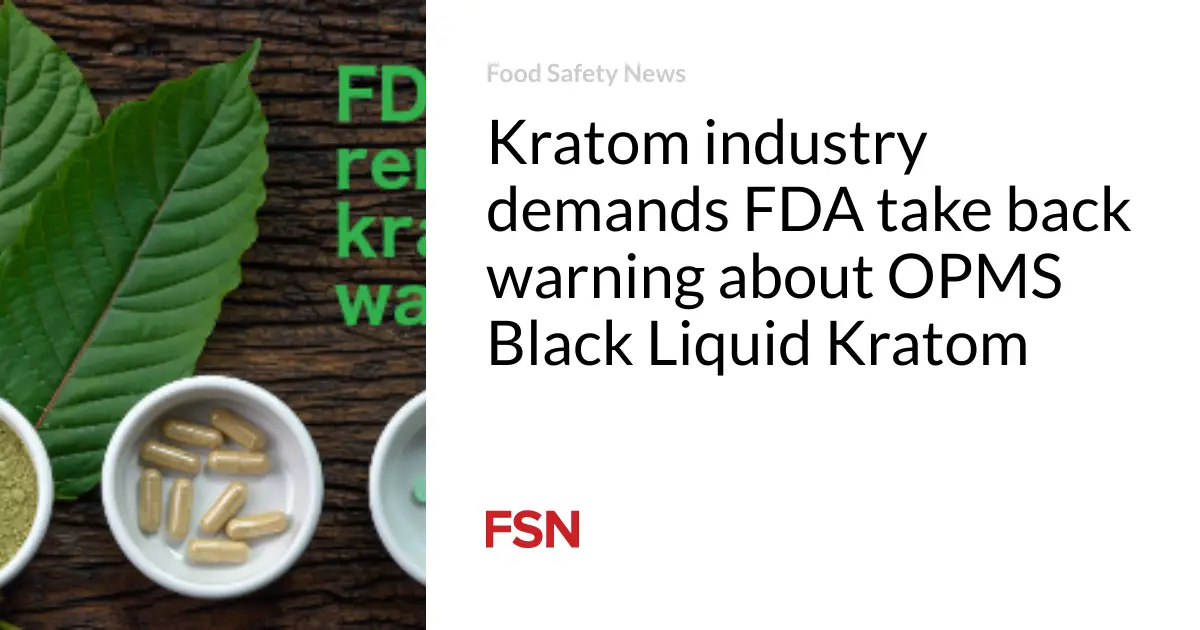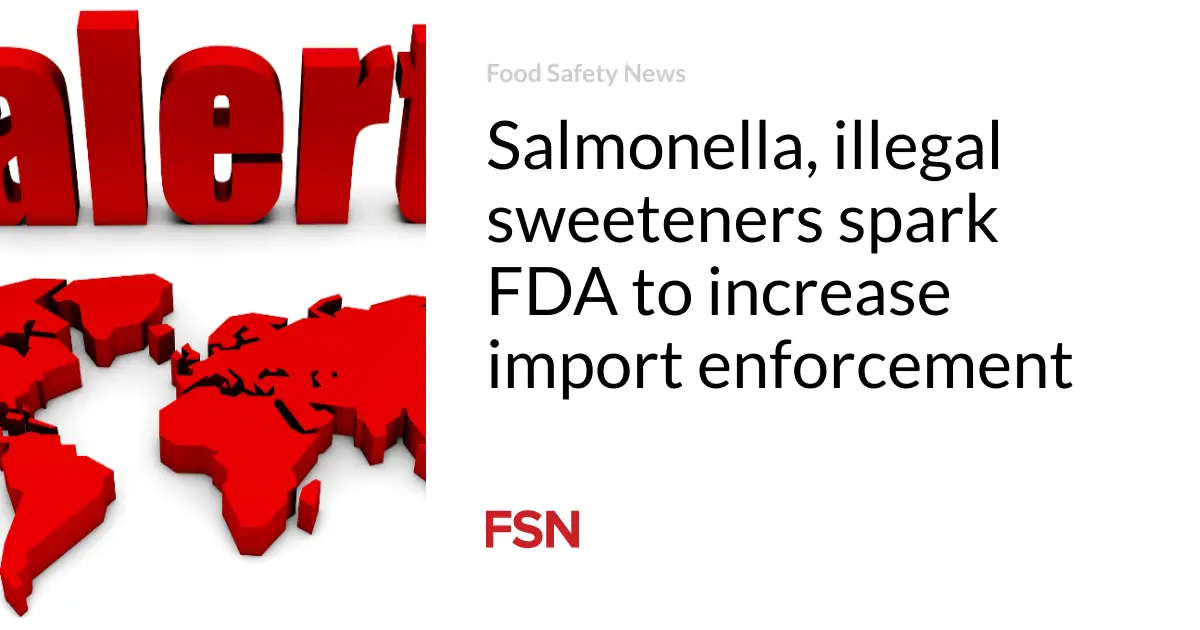
At the end of last month, the Food and Drug Administration was again warning the public about a Kratom product, namely advising consumers not to consume OPMS Black Liquid Kratom, which is sold online and in some retail stores.
According to the FDA, OPMS Black Liquid Kratom is linked to serious adverse health effects, including death.
But this month, the American Kratom Association (AKA) is asking FDA Commissioner Robert Califf to immediately remove the July 26 consumer warning statement regarding OPMS Black Liquid Kratom until the agency has independently verified the alleged claims regarding the death that are conclusively proven to be attributed to this product.
Mac Haddow, Senior Fellow on Public Policy at the AKA, demanded Califf take the action.
“The FDA safety alert on a kratom product appears to be a new rehash of previously debunked FDA claims that kratom killed nine people in Sweden in 2009, that the FDA cited in their Federal Register Notice in 2016 to justify its recommendation to classify kratom as a Schedule I substance.“ Haddow said.
“Researchers eventually determined that the deaths were caused by the mixing of a toxic adulterant, O-desmethyl tramadol, into the kratom product. The HHS Assistant Secretary of Health wrote a scathing withdrawal letter on the FDA’s scheduling recommendation and publicly called out the FDA for using ‘embarrassingly poor evidence and data in trying to schedule kratom.”
Haddow further said that the most recent FDA safety alert vaguely references a reported kratom death but provides no details or credible evidence that would link the death to the kratom product referenced by the FDA.
The recent adverse event report of a person who died after using OPMS Black Liquid Kratom was received by the FDA, one of many reports of serious adverse events individuals have reported experiencing after consuming OPMS Black Liquid Kratom.
Others reported adverse health effects include withdrawal symptoms, addiction, digestive issues, restless leg syndrome, skin problems, aggressive behavior, increased anxiety, lack of energy, and inability to focus. The product label for OPMS Black Liquid Kratom indicates the presence of kratom alkaloids, mitragynine, and 7-hydroxy mitragynine (7-OH mitragynine).
Products containing kratom have been marketed as foods, including dietary supplements or drugs with claims of therapeutic benefits. However, the FDA has not approved any prescription or over-the-counter drug products containing kratom or associated compounds, mitragynine and the more potent metabolite, 7-OH mitragynine. Furthermore, the FDA has serious safety concerns with the use of kratom in dietary supplements and conventional foods.
Based on the available scientific data and information, the FDA has concluded that kratom is not lawfully marketed as a dietary supplement and cannot be lawfully added to conventional foods.
The FDA has continued to warn consumers not to use kratom because of the risk of serious adverse events, including liver toxicity, seizures, and substance use disorder (SUD).
But millions of Americans to use the opioid-like herbal supplement known as kratom, with evidence of its dangers mounting.
FDA called the warning about OPMS Black Liquid Kratom as just another alert for a product it has called out before. “The FDA recently received an adverse event report of a person who died after using OPMS Black Liquid Kratom,” the agency statement said. “This is one of many reports of serious adverse events individuals have reported” after using the supplement, the FDA added.
“The consistently unreliable and often false statements about kratom issued by the FDA over the past decade, which is part of its relentless and misguided pursuit of banning kratom products that are not supported by reliable science, are wrong, and Commissioner Califf should hold his agency fully accountable,” Haddow added. “The various autopsy reports that have claimed that kratom is the sole cause of deaths have been thoroughly refuted as incomplete, poorly documented, hastily concluded, or demonstrably incorrect.”
Kratom is an herbal supplement derived from the dried leaves of a tropical evergreen tree in the coffee family. A chemical called mitragynine, found in kratom, tweaks some of the same brain receptors that respond to opioids.
However, overdoses of mitragynine are toxic to the liver and can prove fatal.
Kratom has been used for centuries in its native Southeast Asia to produce increased energy and relaxation, according to the U.S. National Institute on Drug Abuse.
The drug is mainly unregulated: Anyone can buy kratom online, and it can be found in convenience stores, gas stations, and vape shops. Some bars serving botanical drinks offer kratom tea.
About 1.7 million people 12 and older used kratom in the United States in 2021, according to the National Survey on Drug Use.
The FDA said mitragynine and 7-hydroxy mitragynine (7-OH mitragynine) are listed as ingredients on the product’s label.
The American Kratom Association (AKA) is a non-governmental organization for people who consume natural kratom.
(To sign up for a free subscription to Food Safety News, click here.)







